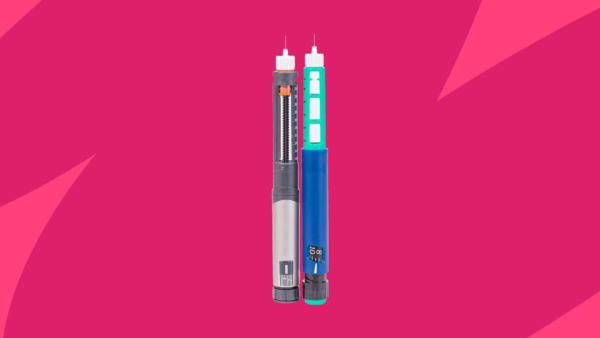Prednisone is a commonly used oral steroid prescription medication prescribed to treat inflammatory conditions like arthritis and autoimmune disorders.
The corticosteroid medication decreases your immune system’s response to various conditions and reduces swelling and allergic reaction symptoms. Doctors prescribe prednisone to treat multiple conditions, from blood disorders to breathing problems, cancer, eye infections, and severe poison ivy.
Prednisone is a powerful medicine that can also cause side effects—some of which may make you more vulnerable to the summer sun and heat.
So what does it mean for your summer plans when you’re taking prednisone? Do you have to avoid the sun entirely? And does prednisone increase your sunburn risk?
Read on for doctor-backed tips to stay safe and cool without giving up your summer fun while taking your medication.
Can you be in the sun at all while taking prednisone?
The good news is taking prednisone doesn’t mean that you have to spend your summer inside. You can still enjoy outdoor activities. While the steroid prescription drug is known for having a long list of side effects, sun sensitivity is not one of them.
“Sun exposure is not contraindicated when taking prednisone,” says Jacob Hascalovici, MD, chief medical officer of Bliss Healthcare.
That said, he recommends wearing sunblock during any prolonged sun exposure.
Does prednisone increase your sunburn risk?
While sun sensitivity is not a listed side effect, many people do report getting more sunburns while taking prednisone.
Kelvin Fernandez, MD, a resident physician at Newark Beth Israel Hospital in New Jersey and tutor for medical students at Ace Med Boards, explains that the increased sensitivity that some people experience may be a secondary effect of some of the drug’s side effects. So while Dr. Fernandez affirms that people don’t need to avoid sun-exposure, he also warns that “prednisone can make your skin more likely to burn.”
Dr. Fernandez explains that thinning of the skin, or skin atrophy, is a side effect of chronic steroid use that may make your skin more likely to experience a sunburn. “Prednisone can make your skin thinner over time, which means it’s less able to handle the sun’s rays.”
And while the incidence of this side effect is more common over an extended period, it can happen in short-term prescriptions and low doses.
Simply put, thinner skin is more fragile, so even if you don’t normally sunburn, this side effect can increase your chances of burning.
Other side effects that prednisone can cause in the skin, which could potentially be confused for sunburn include developing a rash or a flushed face and skin discoloration in specific areas, including dark freckles.
Keep your skin protected
When you enjoy your time in the sun, you need to protect your skin against ultraviolet rays—especially while using prednisone. Here are a few tips:
- Apply broad-spectrum sunscreen with an SPF of at least 30 if you’re spending time outdoors on all exposed areas of your skin, and reapply as directed.
- Avoid direct sun between 10 a.m. and 4 p.m, when the sun’s rays are the most potent.
- Wear a broad-rimmed hat, sunglasses, and SPF protective clothing.
- Avoid alcohol. According to Dr. Fernandez, drinking can cause you to be more prone to sunburn, both because you may be less attentive to your body and how much time you’re in the sun and because of alcohol’s damaging effects on the skin.
Can prednisone make you more sensitive to heat?
Another common complaint reported by people taking prednisone is feeling overheated, sweating, and hot flashes.
Like sun sensitivity, heat intolerance is not a direct side effect of prednisone. However, according to Dr. Fernandez, a combination of factors might make you feel hotter while on prednisone. Like with a sunburn, some of prednisone’s side effects may be contributing factors to feeling hot, including:
- Fever
- Sweating
- Sudden weight gain
- Swelling
- Allergic reactions
- Mood changes. Prednisone can cause some extreme mood swings: increased irritability and even rage, both of which might lead you to feel literally “hot-headed” with emotion.
- Increased blood pressure
If you need to cool down, to help alleviate the sensation of being more sensitive to heat while taking prednisone, wear light, breathable clothing, avoid direct sunlight, and drink plenty of water. “Staying hydrated helps your body cool down naturally,” Dr. Fernandez says.
“You may not have any of these problems,” Dr. Fernandez says, “but knowing ahead of time that you may need to modify your routine will help you plan so you know you’ll be safe and comfortable.”
What should I avoid while taking prednisone?
Besides covering up and cooling off, there are other lifestyle and dietary precautions to be aware of while taking prednisone. This is especially true for people who have chronic conditions, so be sure to discuss all of your medications and any allergies or conditions with your prescribing healthcare provider before taking prednisone.
Acidic food
“Prednisone can cause stomach irritation and elevated blood glucose (sugar),” Dr. Hascalovici says. “If you have a sensitive stomach, it’s best to avoid acidic foods in general, but especially when you’re taking prednisone,” he says.
Grapefruit
One acidic food you may want to make sure to cut out while taking prednisone is grapefruit, which Dr. Fernandez says “can [interfere] with how prednisone works in your body.”
Sugar
If you have diabetes or prediabetes, watch your sugar intake and check your blood sugar levels more often. Make sure your healthcare provider knows about your condition before taking this medication. “It’s important to stick to a low-sugar or strict diabetic diet,” Dr. Hascalovici says. “You’ll want to check your blood glucose often while taking prednisone and speak to your doctor about adjusting your diabetes medications if needed.”
Alcohol
In addition to sunburn concerns, Dr. Fernandez warns: “Alcohol could make some side effects of prednisone worse, like an upset stomach.”
Takeaway
While prednisone doesn’t cause sunburn or overheating directly, it has side effects that can make you more likely to experience these secondary effects, which are uncomfortable and can be dangerous. Protect your skin and practice these doctor-backed tips to cool off this summer.
If you have a chronic illness or allergies or are worried you need to avoid something or change a routine while taking prednisone, talk to your healthcare provider for clarification.
If side effects are causing discomfort or your body does not tolerate prednisone well, your healthcare provider may want to try another medication or make adjustments. Do not stop taking prednisone suddenly or without talking to your provider first for guidance on tapering off the medication properly.











